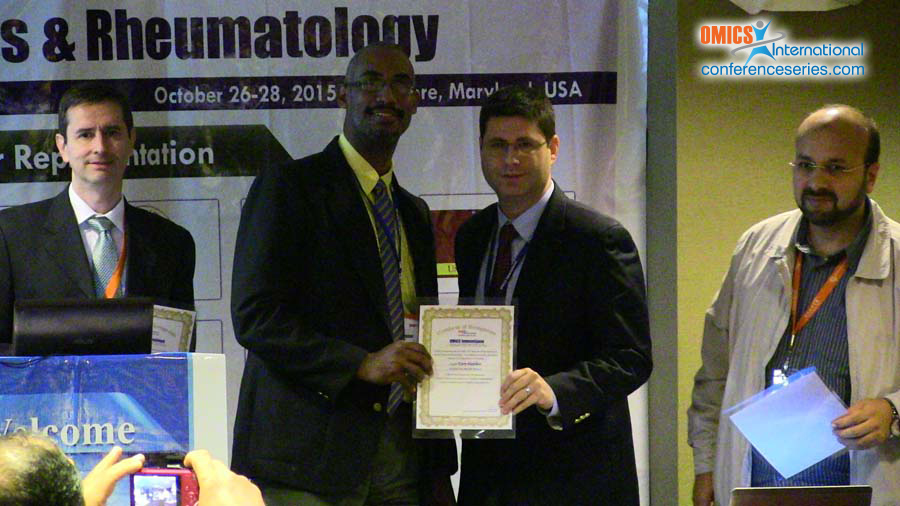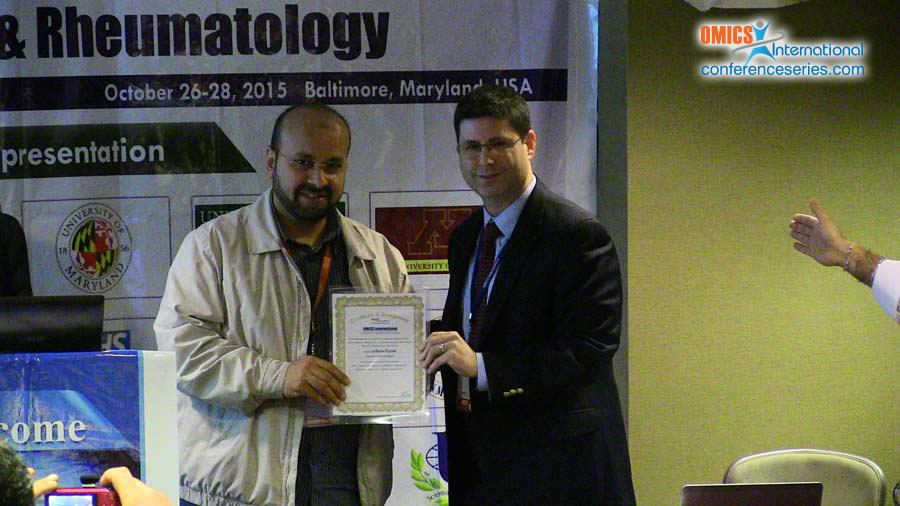
Adham Elgeidi
Mansoura University, Egypt
Title: Interleukin-6 and other inflammatory markers in diagnosis of periprosthetic joint infection
Biography
Biography: Adham Elgeidi
Abstract
Purpose: to evaluate diagnostic value of interleukin- 6 (IL-6) and other inflammatory markers; C- reactive protein (CRP), Erythrocyte sedimentation rate (ESR), and White blood cell count (WCC) in diagnosis of PJI. Methods: Study group included 40 patients (21 males, 19 females) admitted for surgical intervention after knee or hip arthroplasties. Patients were subjected to careful history taking, thorough clinical examination and preoperative laboratory investigations including serum IL-6, CRP, WCC and ESR. Peri-implant tissue specimens were subjected to microbiological culture and histopathological examination. Results: Mean age of studied patients was 58.4 years (range, 38-72 years). Intraoperative cultures and histopathological examination revealed 11 patients had been infected (PJI) and 29 patients were aseptic failure of prosthesis. Four presumed markers of infection were tested preoperatively: ESR; CRP; WCC; and IL-6. ESR (p=0.0001), CRP (p=0.004), WCC (0.0001), and IL-6 (p=0.0001) were significantly higher in patients with septic revision than those with aseptic failure of the prosthesis. Serum IL-6 (> 10.4pg/ml) reportedly had a sensitivity (100%), a specificity (90.9%), a PPV (79%), a NPV (100%), and accuracy (92.5%). Conclusions: The present study demonstrated that IL-6 has been found to be the most accurate laboratory marker for diagnosing PJI when compared to ESR, CRP, and WCC. IL-6 above 10.4 pg/ml and CRP level above 18 mg/L will identify all patients with PJI and the combination of CRP + IL-6 is an excellent screening test to identify all such patients (sensitivity 100%, NPV 100%).


